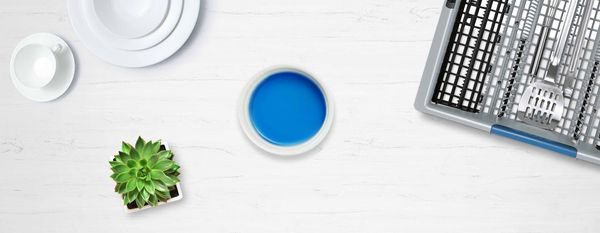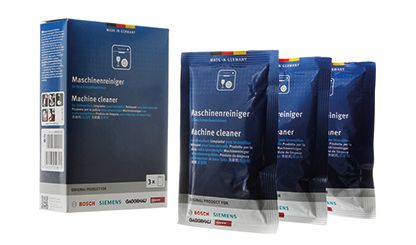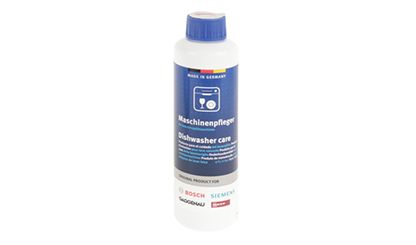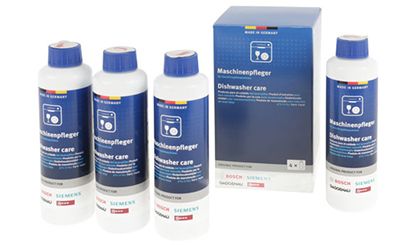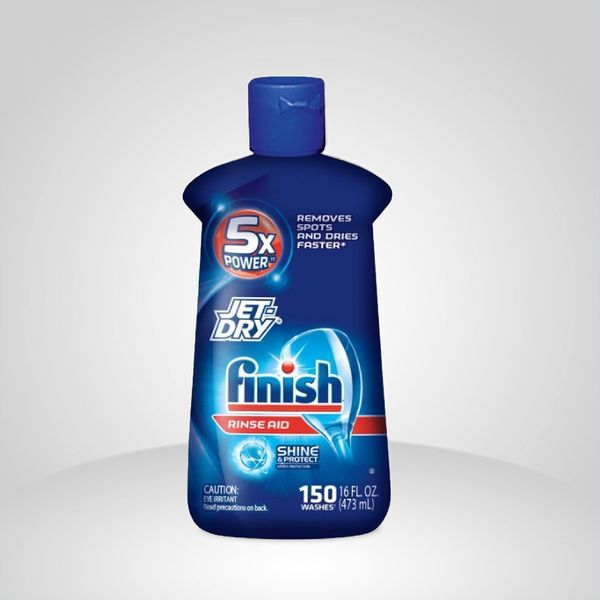
Rinse aid explained.
Rinse aid is a surfectant, meaning it lowers the surface tension of water, so it more easily slides off dishes in the dishwasher. Especially in hard water areas, rinse aid helps prevent water spots from forming on, for example, glasses, plates and cutlery. It also helps dishes dry faster.
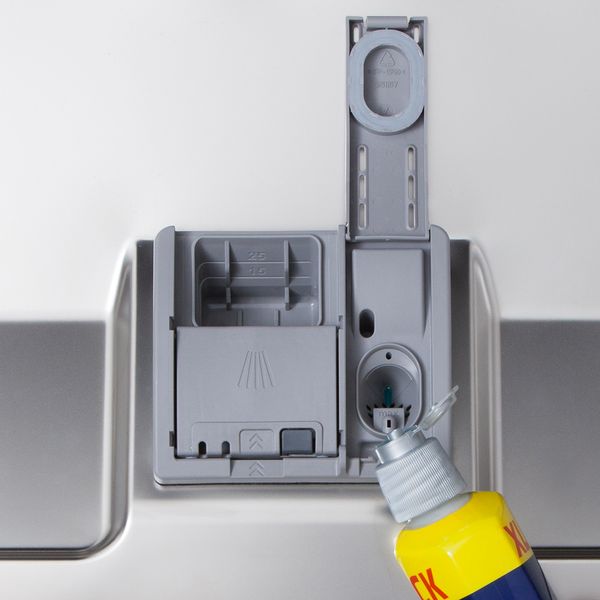
Where rinse aid goes in the dishwasher.
On the inside of the dishwasher door, next to where the detergent goes, is a rinse aid dispenser that must be manually filled. It releases the liquid at the correct time and temperature for each programme.
Pro tip: If you notice rainbow streaks (too much rinse aid) or water stains (too little) on utensils, change your dishwasher's rinse aid settings as described in the user manual.
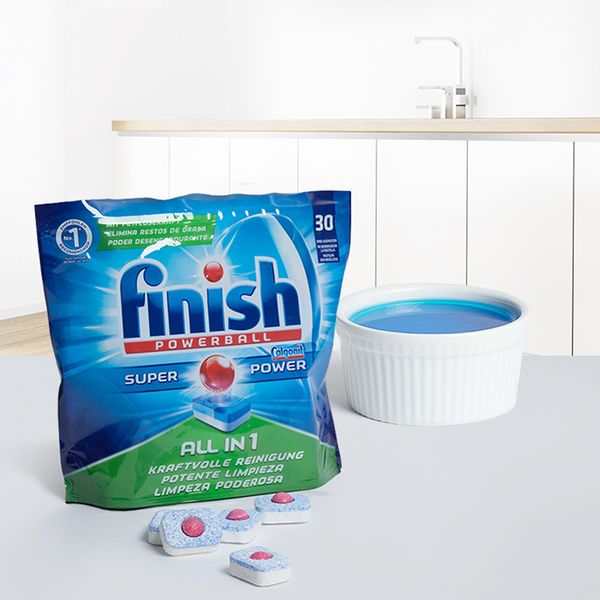
A powerful pair: rinse aid and detergent.
Even if you use an all-in-one detergent that contains a rinse aid, we recommend using a separate rinse aid, in particular if your tap water is hard. Here's why.
Dishwashers dispense detergent and rinse aid at different times during a programme. With an all-in-one product, the amount of rinse aid in the final rinse cycle might be too low, which decreases the drying efficiency. Using a separate rinse aid in addition to all-in-one tablets solves the problem.
Pro tip: No rinse aid on hand? Avoid adding extra all-in-one detergent to compensate. Doing so can damage delicate items such as glasses or leave residue on dishes.
Step-by-step: how to use rinse aid.
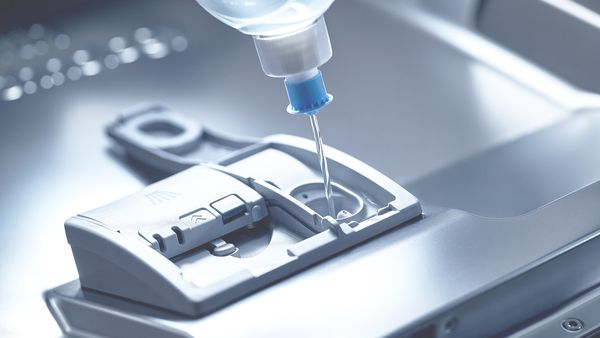
Step 1
1. Open the rinse aid dispenser by pressing on the latch and pulling the lid open.
Step 2
2. Carefully pour the rinse aid into the dispenser until it reaches the max fill line.
Step 3
3. Close the lid and verify it's properly closed.
Step 4
4. Check around the compartment and wipe away any excess rinse aid that has spilled over to avoid foam from forming.
Step 5
5. Run the dishwasher as normal.
